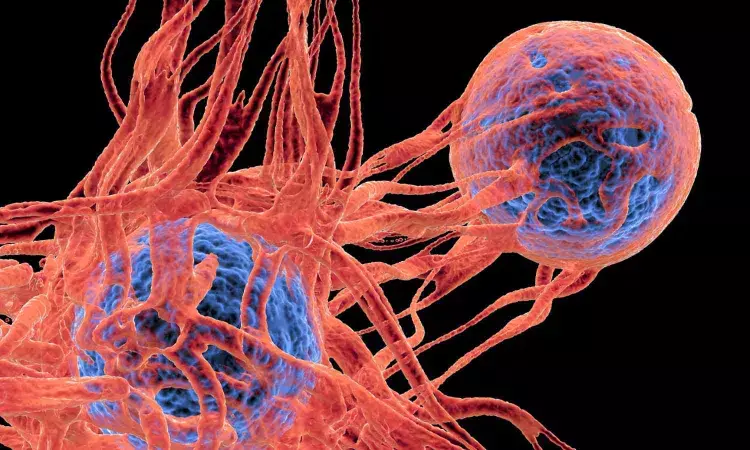- Home
- Medical news & Guidelines
- Anesthesiology
- Cardiology and CTVS
- Critical Care
- Dentistry
- Dermatology
- Diabetes and Endocrinology
- ENT
- Gastroenterology
- Medicine
- Nephrology
- Neurology
- Obstretics-Gynaecology
- Oncology
- Ophthalmology
- Orthopaedics
- Pediatrics-Neonatology
- Psychiatry
- Pulmonology
- Radiology
- Surgery
- Urology
- Laboratory Medicine
- Diet
- Nursing
- Paramedical
- Physiotherapy
- Health news
- Fact Check
- Bone Health Fact Check
- Brain Health Fact Check
- Cancer Related Fact Check
- Child Care Fact Check
- Dental and oral health fact check
- Diabetes and metabolic health fact check
- Diet and Nutrition Fact Check
- Eye and ENT Care Fact Check
- Fitness fact check
- Gut health fact check
- Heart health fact check
- Kidney health fact check
- Medical education fact check
- Men's health fact check
- Respiratory fact check
- Skin and hair care fact check
- Vaccine and Immunization fact check
- Women's health fact check
- AYUSH
- State News
- Andaman and Nicobar Islands
- Andhra Pradesh
- Arunachal Pradesh
- Assam
- Bihar
- Chandigarh
- Chattisgarh
- Dadra and Nagar Haveli
- Daman and Diu
- Delhi
- Goa
- Gujarat
- Haryana
- Himachal Pradesh
- Jammu & Kashmir
- Jharkhand
- Karnataka
- Kerala
- Ladakh
- Lakshadweep
- Madhya Pradesh
- Maharashtra
- Manipur
- Meghalaya
- Mizoram
- Nagaland
- Odisha
- Puducherry
- Punjab
- Rajasthan
- Sikkim
- Tamil Nadu
- Telangana
- Tripura
- Uttar Pradesh
- Uttrakhand
- West Bengal
- Medical Education
- Industry
Revolutionizing Immunotherapy: Harnessing Immune Cells to Target and Combat Cancer

Cancer is a growing threat and is the second leading cause of death globally. Uncontrolled growth of cells has proved challenging to control and treat them. In a recent study, researchers led by City of Hope have discovered that a type of immune cell in the human body, known to be important for allergy and other immune responses, can also attack cancer.
The cells, called "human type 2 innate lymphoid cells (ILC2s)", can be expanded outside of the body and applied in larger numbers to overpower a tumor’s defenses and eliminate malignant cells in mouse models with cancer. The findings are published in the journal Cell.
“The City of Hope team has identified human ILC2 cells as a new member of the cell family capable of directly killing all types of cancers, including blood cancers and solid tumors,” said Jianhua Yu, PhD, a professor in the department of hematology and hematopoietic cell transplantation at City of Hope and the study’s senior author. “In the future, these cells could be manufactured, preserved by freezing, and then administered to patients. Unlike T cell-based therapies, such as CAR T cells, which necessitate using the patient’s own cells due to their specific characteristics, ILC2s might be sourced from healthy donors, presenting a distinct potential therapeutic approach as an allogeneic and ‘off-the-shelf’ product.”
In previous research focused on mouse cells, ILC2s had not consistently shown promise when tested for their cancer-killing abilities. However, the City of Hope researchers discovered that human ILC2s do not work the same as mouse ILC2s.
“Typically, mice are reliable models for predicting human immunity, so it was a real surprise in the field to find that human ILC2s function as direct cancer killers while their mouse counterparts do not,” said Michael Caligiuri, MD, who is a co-senior author of the study and also a City of Hope professor in the department of hematology and hematopoietic cell transplantation. “It is remarkable that something has evolved so distinctly in going from mouse to human.”
To test human ILC2s, Yu and the team first isolated the cells from a blood sample. Then, they developed a novel platform, which in four weeks can expand ILC2s 2,000-fold from those harvested in the body. They next injected these ex vivo expanded ILC2s into mice engrafted with human acute myeloid leukemia (AML) or solid tumors, including pancreatic cancer, lung cancer, and glioblastoma. The results showed that this ILC2 population could kill these tumors via a previously unknown cancer-killing mechanism.
“One convincing and direct piece of evidence appeared when we placed one ILC2 and one tumor cell directly together and found that the tumor cell died, but the ILC2 cell survived,” explained Yu. “This proves that the ILC2s directly killed the cancer cell in the absence of any other cell.”
Yu noted that the ILC2s do not need to come from the cancer patient’s own cells, suggesting that there may be the possibility of harvesting and freezing ILC2s from healthy donors for ILC2 treatment options in the future.
“We aim to really expand the applications of these findings, potentially beyond cancer treatments,” Yu said, noting that ILC2s may even work against viruses, such as COVID-19. “Additionally, we are working towards translating our discovery into tangible clinical benefits.”
Reference:
Zhenlong Li, Rui Ma, Hejun Tang, David Artis, Michael A. Caligiuri, Jianhua Yu, Therapeutic application of human type 2 innate lymphoid cells via induction of granzyme B-mediated tumor cell death, Cell, https://doi.org/10.1016/j.cell.2023.12.015.
MSc. Neuroscience
Niveditha Subramani a MSc. Neuroscience (Faculty of Medicine) graduate from University of Madras, Chennai. Ambitious in Neuro research having worked in motor diseases and neuron apoptosis is interested in more of new upcoming research and their advancement in field of medicine. She has an engrossed skill towards writing and her roles at Medical dialogue include Sr. Content writer. Her news covers new discoveries and updates in field of medicine. She can be reached at editorial@medicaldialogues.in
Dr Kamal Kant Kohli-MBBS, DTCD- a chest specialist with more than 30 years of practice and a flair for writing clinical articles, Dr Kamal Kant Kohli joined Medical Dialogues as a Chief Editor of Medical News. Besides writing articles, as an editor, he proofreads and verifies all the medical content published on Medical Dialogues including those coming from journals, studies,medical conferences,guidelines etc. Email: drkohli@medicaldialogues.in. Contact no. 011-43720751


